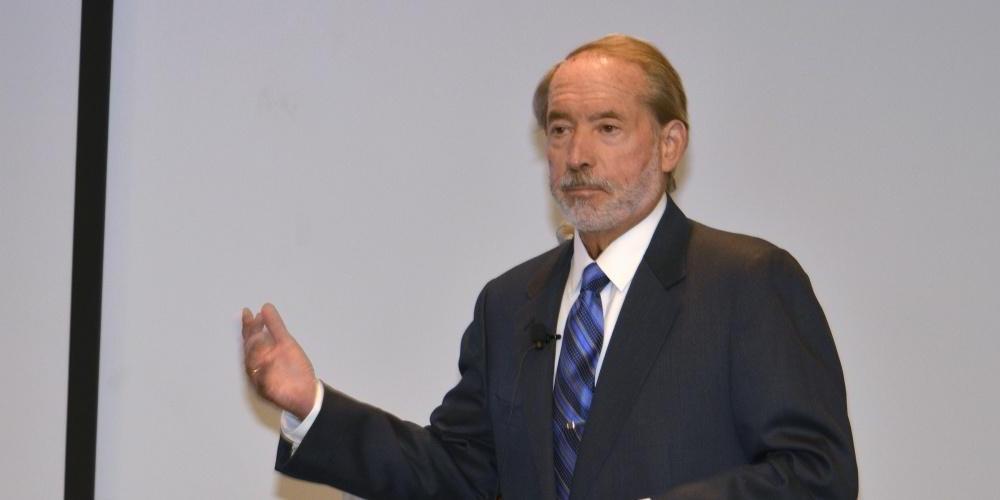International sleep award named for Upstate neurologist
Upstate Medical University’s Antonio Culebras, MD, has been honored by the World Sleep Society for his groundbreaking work promoting the importance of sleep to good health with an award named in his honor.
The Antonio Culebras Award will recognize excellence in the promotion of sleep’s essential role in health on World Sleep Day on March 15.
Culebras co-founded World Sleep Day in 2008 with Liborio Parrino, MD, of Parma, Italy, who also had an award named after him. The pair founded World Sleep Day to raise awareness of sleep around the world. It is a day when sleep health advocates across the world will take action in their local communities, clinics, and countries to raise that awareness.
The Antonio Culebras Award will recognize the work of an activity organizer who celebrates healthy sleep, promoting its capacity for nourishment and healthy living.
The awards will be presented at the World Sleep Society Congress in Singapore in September.
Culebras, a professor of neurology, started the first sleep center in Syracuse in 1978 at the Veterans Affairs Medical Center. That led to a sharing agreement with Upstate Medical University. Thereafter, a private sleep laboratory was created at Community General under the guidance of Culebras and Robert Westlake. This sleep laboratory was later absorbed by Upstate, to create Upstate’s current sleep center. He also was active as a founding director of the World Association of Sleep Medicine, which merged with the Sleep Research Society to become the World Sleep Society. In 2008, he co-founded World Sleep Day, which has been honoring sleep centers around the world since its inception. Now the awards are named for the two founders.
“I’m very proud and very much honored,” said Culebras, of the award created in his name.
For many years, sufficient sleep was not regarded in terms of health, but Culebras calls it one of the three pillars of good health, along with a balanced diet and regular exercise. More and more studies show links between lack of sleep and cognitive decline and even cancer. The medical field and the general public are finally aware of sleep’s importance.
As always, sleep hygiene—which helps people sleep better—is of the utmost importance.
Culebras points to the Ten Commandments of Good Sleep. These include going to bed and waking up at the same time, limiting daytime naps to 20 minutes and avoiding caffeine (including soft drinks and chocolate), spicy, heavy, or sugary foods, alcohol, and exercise four to six hours before going to bed.
In addition, to promote good sleep, use comfortable bedding, keep the room cool and well ventilated, block out noise and as much light as possible. And finally, use your bed only for sleep or sex. It’s not an office, workroom, movie theater or TV viewing venue.
“When we go to school they teach us a lot about exercise and diets,” he said. “No one teaches anyone how to sleep.”
Caption: Antonio Culebras, MD, has been honored by the World Sleep Society with an award in his name.

